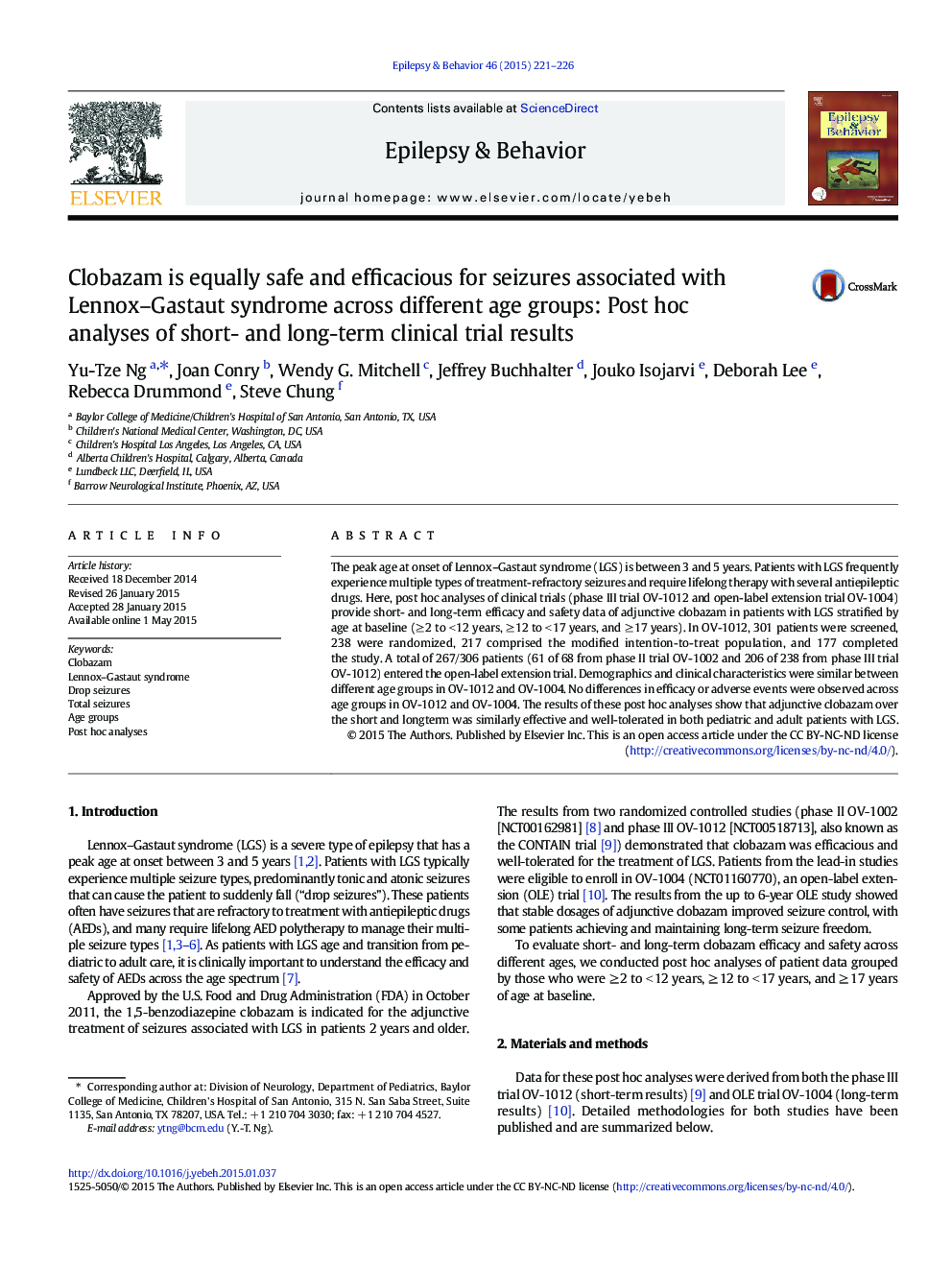| Article ID | Journal | Published Year | Pages | File Type |
|---|---|---|---|---|
| 6010992 | Epilepsy & Behavior | 2015 | 6 Pages |
â¢OV-1012 and OV-1004 patient data were stratified by age at baseline.â¢OV-1012 mean seizure reductions: clobazam-treated patients > placebo across age groupsâ¢OV-1004: median seizure decreases were substantial and sustained for all age groups.â¢Safety analyses revealed no notable differences between age groups in adverse events.â¢Results show that adjunctive clobazam was effective and well-tolerated across the age spectrum.
The peak age at onset of Lennox-Gastaut syndrome (LGS) is between 3 and 5 years. Patients with LGS frequently experience multiple types of treatment-refractory seizures and require lifelong therapy with several antiepileptic drugs. Here, post hoc analyses of clinical trials (phase III trial OV-1012 and open-label extension trial OV-1004) provide short- and long-term efficacy and safety data of adjunctive clobazam in patients with LGS stratified by age at baseline (â¥Â 2 to < 12 years, â¥Â 12 to < 17 years, and â¥Â 17 years). In OV-1012, 301 patients were screened, 238 were randomized, 217 comprised the modified intention-to-treat population, and 177 completed the study. A total of 267/306 patients (61 of 68 from phase II trial OV-1002 and 206 of 238 from phase III trial OV-1012) entered the open-label extension trial. Demographics and clinical characteristics were similar between different age groups in OV-1012 and OV-1004. No differences in efficacy or adverse events were observed across age groups in OV-1012 and OV-1004. The results of these post hoc analyses show that adjunctive clobazam over the short and longterm was similarly effective and well-tolerated in both pediatric and adult patients with LGS.
